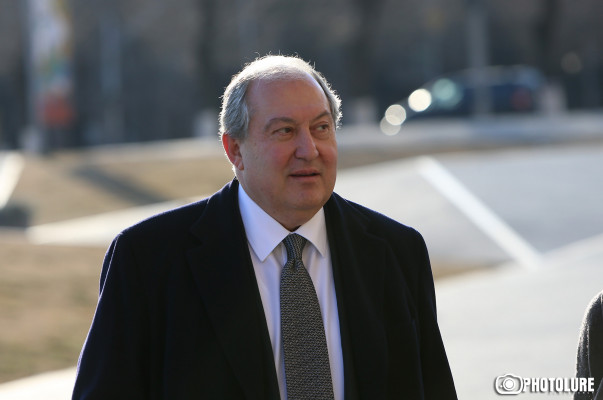
After the referendum held in December 2015 by which the Armenian system of government was transformed from semi-presidentialism to parliamentarism, on 2 March 2018, the Armenian parliament elected Armen Sarkissian as the fourth president of Armenia, after Levon Ter Petrostan (1991-1998), Robert Kocharyan (1998-2008), and Serzh Sargsyan (2008-2018). By that, A. Sarkissian became the first president of Armenia, who was elected not by popular vote, but by the parliament. On 9 April 2018, he took the oath of office and officially assumed the presidential post.
In the new parliamentarian system, the president will be devoid of executive powers. She/he will not possess veto power. As such, the president will only have symbolic significance, whereas the PM will be the top of the executive.
Though the presidency was reduced to a symbolic post in the parliamentarian Armenia, nomination of A. Sarkissian for this post by the ruling Republican Party of Armenia (RPA) and his eventual election triggered a controversy. This article, in the first place, will provide a brief overview of this controversy. As shall be shown below, the issue prompting contention over A. Sarkissian’s nomination was pertained to the alleged ambiguities regarding his citizenship and permanent residence.
Even if the controversy has been ceased, A. Sarkissian’s previous career should still be an issue stirring up ethical questions and manifesting the political culture in Armenia, which, however, is not specific to this country, but a general problem of most of the post-Soviet states. Accordingly, the last part of this article will address these topics.
The Controversy over Armen Sarkissian’s Nomination for the Presidency
At the core of the controversy that erupted out of A. Sarkissian’s nomination for the presidency lies the question of his eligibility to be designated for this post because of the “requirements for the President” set forth by Article 124.2 of the Armenian constitution, which states:
Everyone having attained the age of forty, having held citizenship of only the Republic of Armenia for the preceding six years, having been permanently residing in the Republic of Armenia for the preceding six years, having the right of suffrage and having command of the Armenian language may be elected as President of the Republic (emphasis added).[1]
Those who questioned A. Sarkissian’s eligibility for the presidency claimed that he does not fulfil the constitutional requirements of Armenian citizenship and permanent residence in Armenia for the preceding six years.
On 8 February 2018, Hrant Galstyan from the hetq.am media outlet brought forward these questions to public attention. He wrote: “…according to documents in the British Companies House registry on the Eurasia House International company, of which Sarkissian is listed as a director, his nationality is listed as British, and his Country of Residence, as the United Kingdom.”[2]
Reacting to this allegation, A. Sarkissian’s public relations officer stated that A. Sarkissian was a dual citizen of Armenia and the UK between 2002 and 2011, but he later renounced his British citizenship. As a response, H. Galstyan wrote that since 2005, in all the annual reports of Eurasia House International, the company established by A. Sarkissian, he was listed as a British citizen. Galstyan added that:
In the company’s 2014 Annual Return, the last published before the company was dissolved the following year, Sarkissian is listed as a British national and the country of his “usual residency” as the United Kingdom.
Thus, on both counts, just four years ago, Sarkissian, in the company’s reports, is listed solely as a citizen of Great Britain and its resident.[3]
A day later, A. Sarkissian told the reporters that he acquired the UK citizenship in 2002 and rejected it in 2011. He explained that he applied for the UK citizenship out of the necessity of visiting different countries for his business activities.[4]
On 1 March a debate erupted in the parliament. The leader of the oppositional Yelq bloc implied that that there was no “official document certifying when he renounced citizenship of the UK” and demanded such a document immediately.[5] Upon this request, documents about A. Sarkissian’s nationality were represented. However, the members of the Yelq bloc continued their dissent.[6]
Although, in the end, opposition to A. Sarkissian’s candidacy did not hinder his eventual ascendency to the presidency, as said above, A. Sarkissian’s previous carrier should still raise questions regarding ethics and political culture in Armenia.
Armen Sarkissian’s “Unusual” Career
Armen Sarkissian was a professor of physics at the Yerevan State University between 1976 and 1984. He continued his academic life at Cambridge University until 1991. Between 1991 and 1995, he was appointed as the Armenian Ambassador to the UK. In 1995-1996 he became the PM of the RA. After that, he turned back to his diplomatic career, which lasted until 1999.
A. Sarkissian began a new career as a businessperson by founding the Eurasia House International[7] in the UK in 2000. In his new business career that lasted until 2013, he worked as the advisor of international companies such as British Petroleum, Alcatel, Telefonica, Bank of America Merrill Lynch. In 2013, A. Sarkissian, once again, became the Armenian ambassador to the UK.[8]
Questions about Ethics and Political Culture
Although walking out of diplomacy to business world and then back to diplomacy again is not so unusual in the post-soviet world, such kind of a career is both uncommon and suspicious in the Western world. A diplomat, who establishes personal and business ties with international companies while she/he is on active duty in a foreign country, then steps in the business world, and eventually moves back to diplomacy would (and should) raise not only ethical concerns, but also questions related to state-security. The case of A. Sarkissian, alas, stands contradictory to this understanding.
From a pragmatist point of view, one may also ask why A. Sarkissian, but not someone else with a less controversial career, was nominated and elected as the president. Such a choice would have been wiser to forestall polemics erupting over the person of the president, hence to prevent the erosion of the prestige of the presidential office. Firm, institutionalized, functional, trusted, transparent political entities and offices are the imperatives for functioning democracies. Accordingly, the election of A. Sarkissian as the president may have an indirect consequence of impairing democratization in Armenia.
Yet, the Armenian establishment seems to be not so much concerned with these matters. In fact, A. Sarkissian is not the first person to hold a top administrative position with a business career in foreign countries and/or to cause controversies that consume public trust to political entities and offices. For example, the former PM Karen Karapetyan who handed the office to A. Sarkissian on 9 April, after serving as Yerevan’s mayor in 2010-2011 moved to Moscow and became the vice-president of Russian state-owned Gazprombank, and then the deputy CEO of Russian state-owned gas company Gazprom's Mezhregiongaz unit.[9]
Examples could be multiplied. In August 2015 reports accusing the then PM and the head of the Armenia’s anti-corruption council Hovik Abrahamyan, who owned “private companies, gas stations, casinos and vast investment properties” while serving as the PM for misusing government were broadcasted. These reports revealed that H. Abrahamyan’s business activities were a violation of the Armenian constitution which prohibits “government officials from signing business deals for personal enrichment while in office.”[10] In April 2016, the Panama Papers disclosed that the Major General of Justice Mihran Poghosyan owned offshore business ventures in Panama. Other similar cases, related to top army officers, as well, were also reported in the recent past.[11]
Although, in the past years, several state officials were arrested on corruption charges, these arrests did not persuade the Armenian public about the existence of an effective fight against corruption. As to that,the fact that Armenia ranks 107 out of 180 countries in the Transparency International’s Corruption Perceptions Index 2017 reveals the low trust to public sector with respect to corruption manifesting the unpromising situation in Armenia, which, definitely erodes the stature of the political entities and offices in Armenia.
To conclude, A. Sarkissian’s ascendency to the presidential post reveals that Armenia is still on the path to accomplish its post-Soviet transition, particularly in ethical and political cultural domains. Actually, this problem causes deeper social problems such as apathy and indifference among the public evidenced by, for example, the low voter turn outs in parliamentary and presidential elections and referendums (60,56% in average between 1998 and 2017),[12] which, in turn, evolves into a larger problem of hindrance of democratization in the country.
Photo: tert.am
[1] National Assembly of the Republic of Armenia, Amendments to the Constitution of the Republic of Armenia, Last modified April 12, 2018, http://www.parliament.am/parliament.php?id=constitution&lang=eng.
[2] Hrant Galstyan, “Does Armen Sarkissian Qualify as Armenia's Next President? British Documents Raise Armenian Citizenship Doubt,” Hetq, February 08, 2018, accessed April 12, 2018, http://hetq.am/eng/news/85625/does-armen-sarkissian-qualify-as-armenias-next-president-british-documents-raise-armenian-citizenship-doubt.html.
[3] Hrant Galstyan, “Does Armen Sarkissian Qualify as Armenia's Next President? British Documents Raise Armenian Citizenship Doubt.”
[4] “Presidential candidate Armen Sarkissian says he refused from UK citizenship in 2011,” Armenpress, February 09, 2018, accessed April 12, 2018, https://armenpress.am/eng/news/922086/presidential-candidate-armen-sarkissian-says-he-refused-from-uk-citizenship-in-2011.html.
[5] “Who Gave That Paper to Armen Sarkissian?,” Lragir, March 01, 2018, accessed April 12, 2018, http://www.lragir.am/index/eng/0/country/view/37977.
[6] “Who Gave That Paper to Armen Sarkissian?”
[7] “Overview,” Eurasia House, Last Modified April 12, 2018, http://www.eurasiahouse.com/about.
[8] “Entrepreneur, diplomat and ex-PM: Who is Armen Sarkissian?,” News.am, January 19, 2018, accessed April 12, 2018, https://news.am/eng/news/431897.html.
[9] “Ex-Gazprom Executive Becomes New Armenian Prime Minister,” Radio Free Europe / Radio Liberty, September 13, 2016, accessed April 12, 2018, https://www.rferl.org/a/armenias-new-prime-minister-karapetian-gazprom/27983645.html.
[10] Samuel Ramani, “Why Anti-Corruption Protests Are Rising In Armenia,” Huffington Post, accessed April 12, 2018, https://www.huffingtonpost.com/samuel-ramani/why-anticorruption-protests_b_11525610.html.
[11] Samuel Ramani, “Why Anti-Corruption Protests Are Rising In Armenia.”
[12] Turgut Kerem Tuncel, “2 April 2017 Parliamentary Elections in Armenia," Center For Eurasian Studies (AVİM), Analysis No.2017 / 16, April 14, 2017, accessed April 12, 2018. http://avim.org.tr/en/Analiz/2-APRIL-2017-PARLIAMENTARY-ELECTIONS-IN-ARMENIA.
© 2009-2025 Center for Eurasian Studies (AVİM) All Rights Reserved
No comments yet.
-
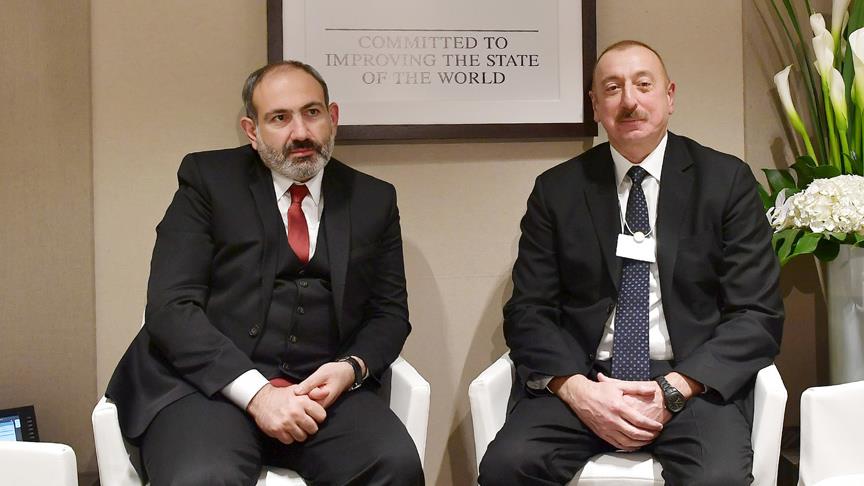 AZERBAIJAN-ARMENIA PEACE NEEDS STRATEGIC OUTLOOK AND PRAGMATIC STEPS
AZERBAIJAN-ARMENIA PEACE NEEDS STRATEGIC OUTLOOK AND PRAGMATIC STEPS
Turgut Kerem TUNCEL 20.12.2023 -
 THE UKRAINE-RUSSIA WAR AND THE BLACK SEA SECURITY
THE UKRAINE-RUSSIA WAR AND THE BLACK SEA SECURITY
Turgut Kerem TUNCEL 30.05.2023 -
 "RUSSIA USING the ‘ARMENIAN CARD’" - COMMENTARY PUBLISHED IN HURRIYET DAILY NEWS
"RUSSIA USING the ‘ARMENIAN CARD’" - COMMENTARY PUBLISHED IN HURRIYET DAILY NEWS
Turgut Kerem TUNCEL 01.12.2015 -
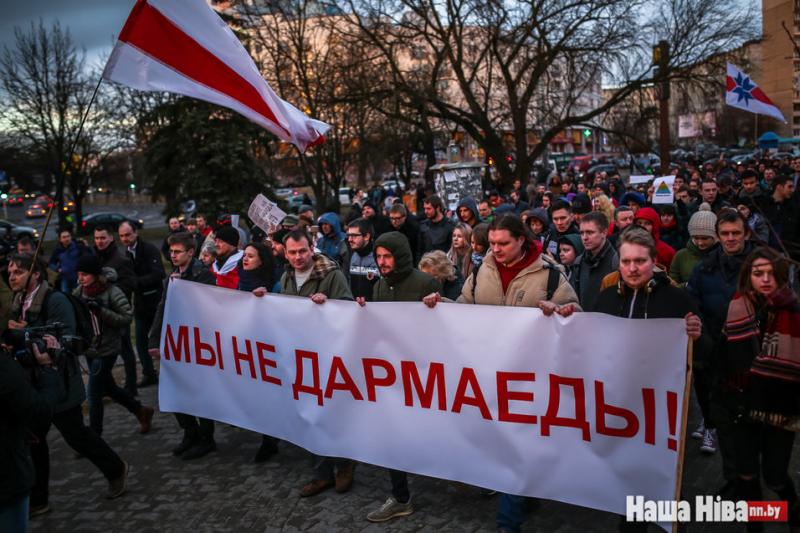 PROTESTS AGAINST THE “SOCIAL PARASITE TAX” IN BELARUS
PROTESTS AGAINST THE “SOCIAL PARASITE TAX” IN BELARUS
Turgut Kerem TUNCEL 24.03.2017 -
 PASHINYAN CALLS ON ARMENIAN DIASPORA TO BEHAVE RESPONSIBLY
PASHINYAN CALLS ON ARMENIAN DIASPORA TO BEHAVE RESPONSIBLY
Turgut Kerem TUNCEL 04.10.2024
-
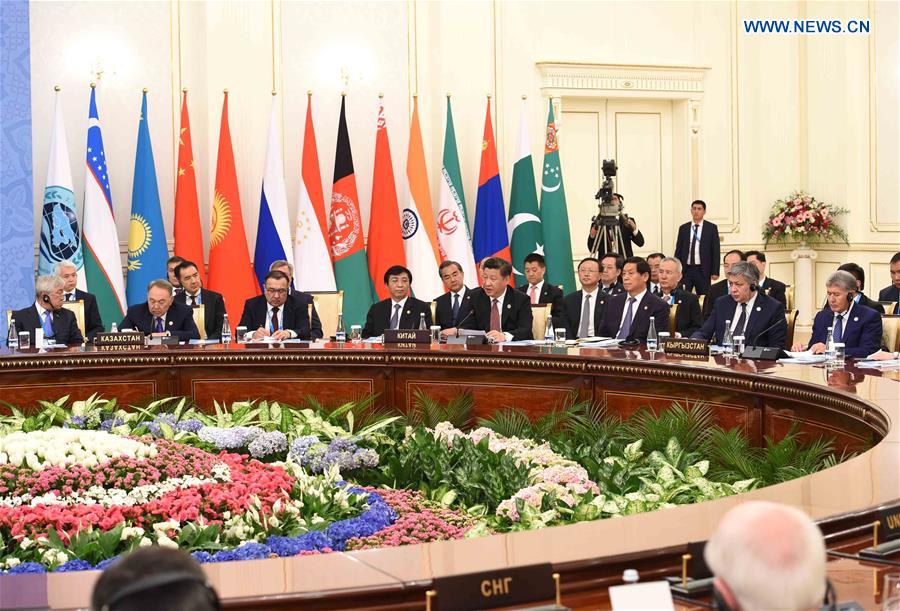 IRAN AND SHANGHAI COOPERATION ORGANIZATION
IRAN AND SHANGHAI COOPERATION ORGANIZATION
Özge Nur ÖĞÜTCÜ 27.06.2016 -
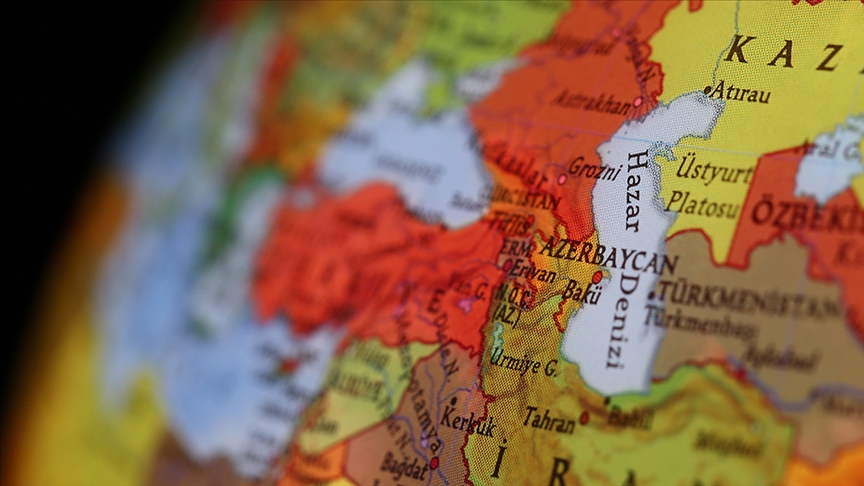 ARMENIA: THE COUNTRY THAT ISOLATES ITSELF IN THE CAUCASUS
ARMENIA: THE COUNTRY THAT ISOLATES ITSELF IN THE CAUCASUS
Gülperi GÜNGÖR 23.03.2023 -
EXTREME NATIONALIST ARMENIANS IN THE USA OPPOSING CHUCK HAGEL’S CANDIDACY AS SECRETARY OF DEFENSE
Alev KILIÇ 22.01.2013 -
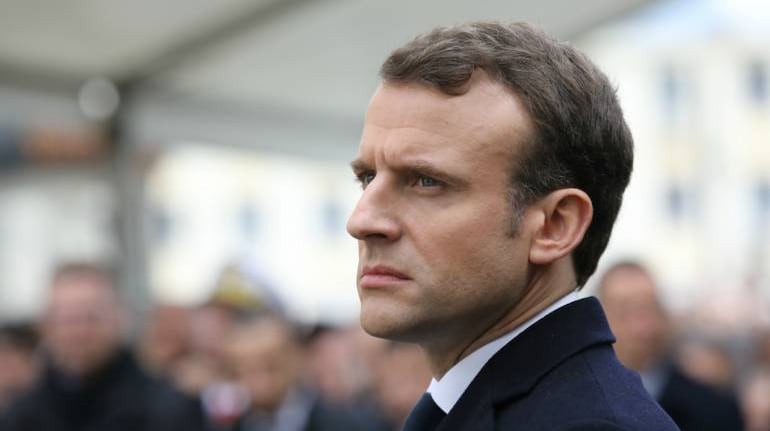 EU OBSERVER IN THE SPOTLIGHT AGAIN
EU OBSERVER IN THE SPOTLIGHT AGAIN
AVİM 26.10.2020 -
 POPE FRANCIS’ OFFICIAL VISIT TO ARMENIA
POPE FRANCIS’ OFFICIAL VISIT TO ARMENIA
Mehmet Oğuzhan TULUN 21.06.2016
-
25.01.2016
THE ARMENIAN QUESTION - BASIC KNOWLEDGE AND DOCUMENTATION -
12.06.2024
THE TRUTH WILL OUT -
27.03.2023
RADİKAL ERMENİ UNSURLARCA GERÇEKLEŞTİRİLEN MEZALİMLER VE VANDALİZM -
17.03.2023
PATRIOTISM PERVERTED -
23.02.2023
MEN ARE LIKE THAT -
03.02.2023
BAKÜ-TİFLİS-CEYHAN BORU HATTININ YAŞANAN TARİHİ -
16.12.2022
INTERNATIONAL SCHOLARS ON THE EVENTS OF 1915 -
07.12.2022
FAKE PHOTOS AND THE ARMENIAN PROPAGANDA -
07.12.2022
ERMENİ PROPAGANDASI VE SAHTE RESİMLER -
01.01.2022
A Letter From Japan - Strategically Mum: The Silence of the Armenians -
01.01.2022
Japonya'dan Bir Mektup - Stratejik Suskunluk: Ermenilerin Sessizliği -
03.06.2020
Anastas Mikoyan: Confessions of an Armenian Bolshevik -
08.04.2020
Sovyet Sonrası Ukrayna’da Devlet, Toplum ve Siyaset - Değişen Dinamikler, Dönüşen Kimlikler -
12.06.2018
Ermeni Sorunuyla İlgili İngiliz Belgeleri (1912-1923) - British Documents on Armenian Question (1912-1923) -
02.12.2016
Turkish-Russian Academics: A Historical Study on the Caucasus -
01.07.2016
Gürcistan'daki Müslüman Topluluklar: Azınlık Hakları, Kimlik, Siyaset -
10.03.2016
Armenian Diaspora: Diaspora, State and the Imagination of the Republic of Armenia -
24.01.2016
ERMENİ SORUNU - TEMEL BİLGİ VE BELGELER (2. BASKI)
-
AVİM Conference Hall 24.01.2023
CONFERENCE TITLED “HUNGARY’S PERSPECTIVES ON THE TURKIC WORLD"









